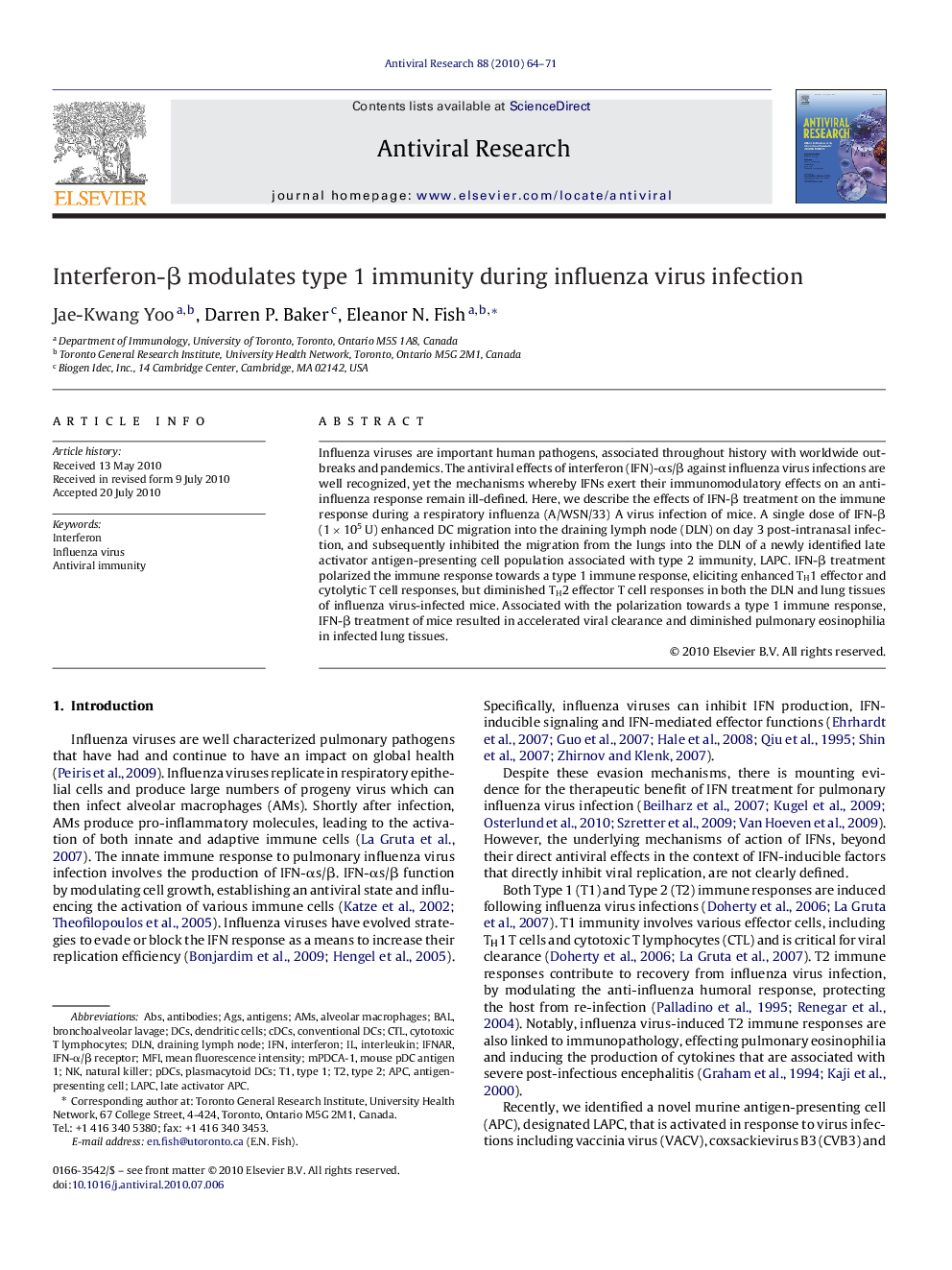| Article ID | Journal | Published Year | Pages | File Type |
|---|---|---|---|---|
| 2510743 | Antiviral Research | 2010 | 8 Pages |
Influenza viruses are important human pathogens, associated throughout history with worldwide outbreaks and pandemics. The antiviral effects of interferon (IFN)-αs/β against influenza virus infections are well recognized, yet the mechanisms whereby IFNs exert their immunomodulatory effects on an anti-influenza response remain ill-defined. Here, we describe the effects of IFN-β treatment on the immune response during a respiratory influenza (A/WSN/33) A virus infection of mice. A single dose of IFN-β (1 × 105 U) enhanced DC migration into the draining lymph node (DLN) on day 3 post-intranasal infection, and subsequently inhibited the migration from the lungs into the DLN of a newly identified late activator antigen-presenting cell population associated with type 2 immunity, LAPC. IFN-β treatment polarized the immune response towards a type 1 immune response, eliciting enhanced TH1 effector and cytolytic T cell responses, but diminished TH2 effector T cell responses in both the DLN and lung tissues of influenza virus-infected mice. Associated with the polarization towards a type 1 immune response, IFN-β treatment of mice resulted in accelerated viral clearance and diminished pulmonary eosinophilia in infected lung tissues.
